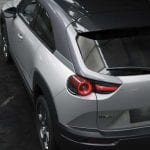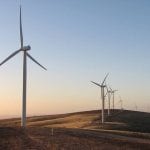Around The Web
Gull cull: should nuisance birds really be shot?
‘Seagulls kill dog then return to attack toddler two weeks later.” “‘Psycho’ seagull ‘pecked and clawed’ at student.” “British seagulls are turning cannibal and EATING each other.” If the newspaper headlines are anything to go by, gulls are a growing threat to the British population. No longer satisfied with stealing chips from tourists at seaside towns, the birds are attacking everyone from unsuspecting holidaymakers to small children. And who could forget the grizzly tale of Gizmo the chihuahua, cruelly snatched away by a gull in Devon never to be seen again – that is, until a furry leg turned up a few weeks later. It is no wonder public opinion has turned against them.
The situation has turned so sour in Worcester that the city council is now proposing a gull cull. The council is considering applying for a licence to shoot the birds, with one councillor saying it is the only way to stop residents from “needlessly suffering”.
Continue reading...Ramped-up donations keep UN climate fund going, defying US snub
Engie trading arm loses carbon analyst
Brexit: Will the Falkland Islands wildlife suffer?
SUVs second biggest cause of emissions rise, figures reveal
If SUV drivers were a nation, they would rank seventh in the world for carbon emissions
Growing demand for SUVs was the second-largest contributor to the increase in global CO2 emissions from 2010 to 2018, a new analysis has found.
In that period, SUVs doubled their global market share from 17% to 39% and their annual emissions rose to more than 700 megatonnes of CO2, more than the yearly total emissions of the UK and the Netherlands combined.
Continue reading...UPDATE – BP makes $5 mln investment into US offset developer
Greta Thunberg: New beetle named after climate activist
Emissions Market Analyst, Engie – Brussels
CN Markets: Pilot market data for week ending Oct. 25, 2019
Global Environmental Products Project Manager, BP – London
Glacial rivers absorb carbon faster than rainforests, scientists find
‘Total surprise’ discovery overturns conventional understanding of rivers
In the turbid, frigid waters roaring from the glaciers of Canada’s high Arctic, researchers have made a surprising discovery: for decades, the northern rivers secretly pulled carbon dioxide from the atmosphere at a rate faster than the Amazon rainforest.
The findings, published in the Proceedings of the National Academy of Sciences, flip the conventional understanding of rivers, which are largely viewed as sources of carbon emissions.
Continue reading...Townsville shopping centre builds “Australia’s biggest” solar car park
 A 1.5MW, 500-space solar car park is being installed by commercial solar company Epho at the Willows Shopping Centre in Townsville, Queensland.
A 1.5MW, 500-space solar car park is being installed by commercial solar company Epho at the Willows Shopping Centre in Townsville, Queensland.
The post Townsville shopping centre builds “Australia’s biggest” solar car park appeared first on RenewEconomy.
ARENA-backed project trials “net zero energy” homes in Melbourne
 ARENA backs Mirvac housing project in Melbourne to demonstrate the feasibility of building solar and battery powered “net zero energy” homes at scale.
ARENA backs Mirvac housing project in Melbourne to demonstrate the feasibility of building solar and battery powered “net zero energy” homes at scale.
The post ARENA-backed project trials “net zero energy” homes in Melbourne appeared first on RenewEconomy.
'Citizen army' needed to tackle invasive species, MPs suggest
Environmental committee says government funding ‘fails to match scale of threat’
A citizen army is needed to help tackle invasive species that threaten the natural environment and in some cases human health, MPs have said.
The cost to the economy of non-native species taking hold in the UK is estimated to be £1.8bn a year, a report from the environmental audit committee says.
Continue reading...World Lemur Day – a photo essay by Bristol Zoological Society
Friday is World Lemur Day. Lemurs are the earth’s most threatened larger group of mammals; there are more than 100 species and almost all are under threat of extinction. Bristol Zoological Society has been studying lemurs and working on their conservation in north-west Madagascar for over 10 years
Lemur species vary enormously in their size, appearance and behaviour, from the strange-looking nocturnal aye-aye to the sideways-leaping Coquerel’s sifaka. All species are endemic to the island of Madagascar, where they are under severe threat from fragmentation and loss of their forest habitat, due to logging, subsistence agriculture and forest fires, and are also at risk from hunting and the rapid recent increase in the human population.
Continue reading...It's not just about your feelings, OK? The best end for a racehorse might be the knackery
Mazda’s first all electric car combines eco kudos with sporty style
 With an environmentally conscious interior design and sporty exterior, Mazda has created a vehicle that should fit happily within the compact SUV market.
With an environmentally conscious interior design and sporty exterior, Mazda has created a vehicle that should fit happily within the compact SUV market.
The post Mazda’s first all electric car combines eco kudos with sporty style appeared first on RenewEconomy.
Jinko 460W “Tiger” solar module launched in Australia
 JinkoSolar launches new, high efficiency solar panel onto Australian market, offering up 460W generation capacity, and a module efficiency of just over 20%.
JinkoSolar launches new, high efficiency solar panel onto Australian market, offering up 460W generation capacity, and a module efficiency of just over 20%.
The post Jinko 460W “Tiger” solar module launched in Australia appeared first on RenewEconomy.
The Verdict: Will driving electric vehicles ruin your long weekend?
 My final message is to the federal Liberal Party: “You’ve Scott to be kidding: EVs are perfect for the long weekend’.
My final message is to the federal Liberal Party: “You’ve Scott to be kidding: EVs are perfect for the long weekend’.
The post The Verdict: Will driving electric vehicles ruin your long weekend? appeared first on RenewEconomy.
Tilt completes refinancing of Snowtown 2 wind farm
 Tilt Renewables Limited (TLT) is pleased to advise that financial close was achieved today on a standalone project financing package for the operational Snowtown 2 Wind Farm asset.
Tilt Renewables Limited (TLT) is pleased to advise that financial close was achieved today on a standalone project financing package for the operational Snowtown 2 Wind Farm asset.
The post Tilt completes refinancing of Snowtown 2 wind farm appeared first on RenewEconomy.



